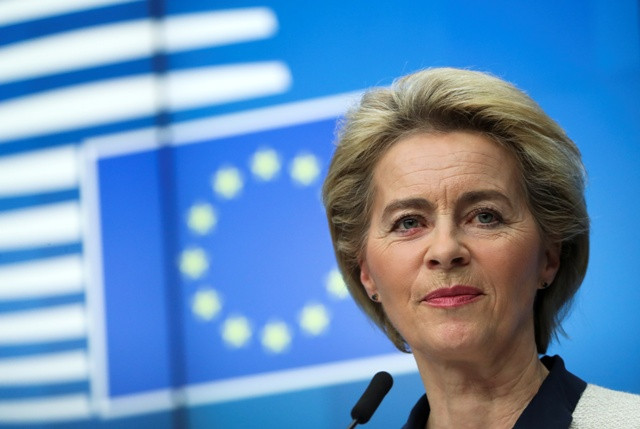The European Commission on Wednesday proposed suspending key trade privileges with Israel and imposing sanctions on two far-right Israeli ministers, citing a breach of human rights obligations under the EU-Israel Association Agreement and the escalating humanitarian crisis in Gaza.
European Commission President Ursula von der Leyen said the proposals followed a review of Israel's compliance with Article 2 of the agreement, which concluded that Israel's actions represent "a breach of essential elements relating to respect for human rights and democratic principles." She added, "The horrific events taking place in Gaza on a daily basis must stop. There needs to be an immediate ceasefire, unrestrained access for all humanitarian aid and the release of all hostages held by Hamas."
The package would suspend Israel's preferential access to the EU market, reimpose tariffs on roughly €5.8 billion of exports, and freeze mutual benefits related to public procurement and intellectual property rights. EU Trade Commissioner Maroš Šefčovič said the measures were "both appropriate and proportionate given the ongoing humanitarian crisis in Gaza."
The commission also called for sanctions on National Security Minister Itamar Ben-Gvir, Finance Minister Bezalel Smotrich, violent Israeli settlers in the West Bank, and 10 Hamas leaders. Brussels said it was pausing bilateral support to Israel, with exceptions for civil society organizations and Yad Vashem, the World Holocaust Remembrance Center.
Despite the strong language, the proposals face steep political hurdles. Both the preferential trade suspension and research grant freezes require a qualified majority - 15 of 27 member states representing at least 65% of the EU population. Germany and Italy have not indicated support, and a German government spokesperson said Berlin had "not yet formed a final opinion." Sanctions require unanimity, raising the possibility of a veto from Hungary, a close ally of Prime Minister Benjamin Netanyahu's government that has previously blocked EU measures targeting settlers.
EU foreign policy chief Kaja Kallas acknowledged the deep divisions among member states. "Although we see that the public opinion in member states is really shifting because of the suffering in Gaza ... on a political level ... I think the political lines are very much in the place where they have been so far," she said.
Israel's Foreign Minister Gideon Sa'ar rejected the proposals, writing on X that they were "morally and politically distorted" and expressing hope they would not be adopted.
The push comes as Israeli forces continue an expanded ground assault in Gaza City that has killed nearly 65,000 Palestinians since Hamas's October 7, 2023 attack, which left more than 1,200 Israelis dead and 250 taken hostage. Protests have mounted across European capitals demanding tougher action, with Spain and Ireland calling for an arms embargo and suspension of economic cooperation.
The EU is Israel's largest trading partner, accounting for 32% of its global trade in goods. The association agreement, signed in 2000, underpins a €68 billion trading relationship and facilitates cooperation on research, energy, and environmental projects. Reimposing tariffs would generate roughly €227 million in annual duties, according to commission estimates.






